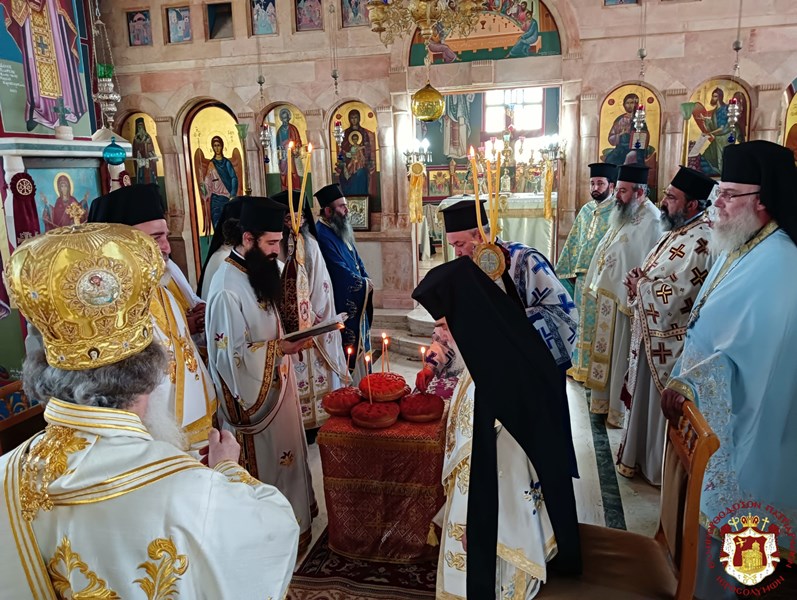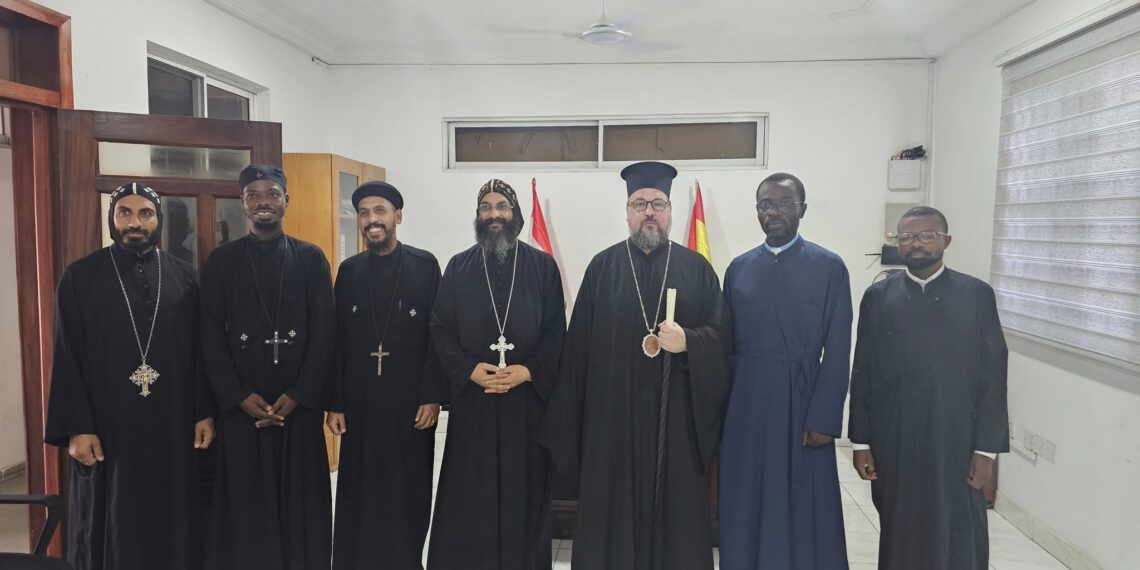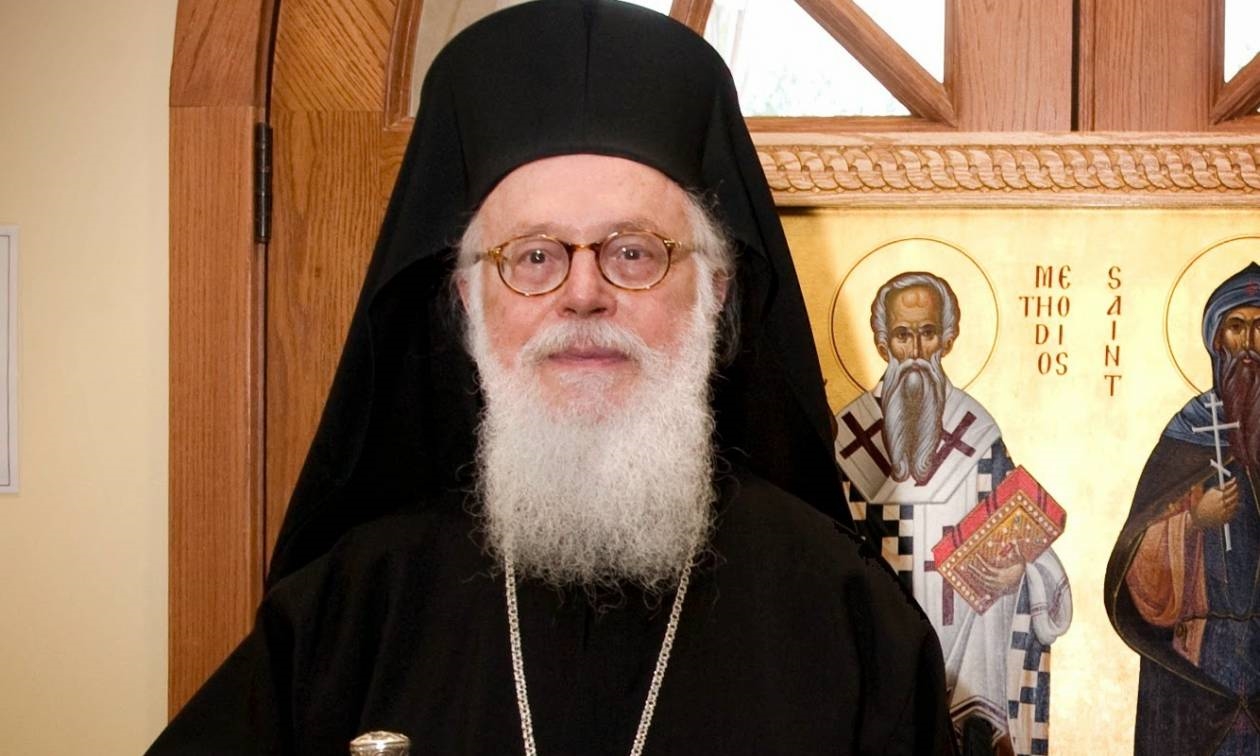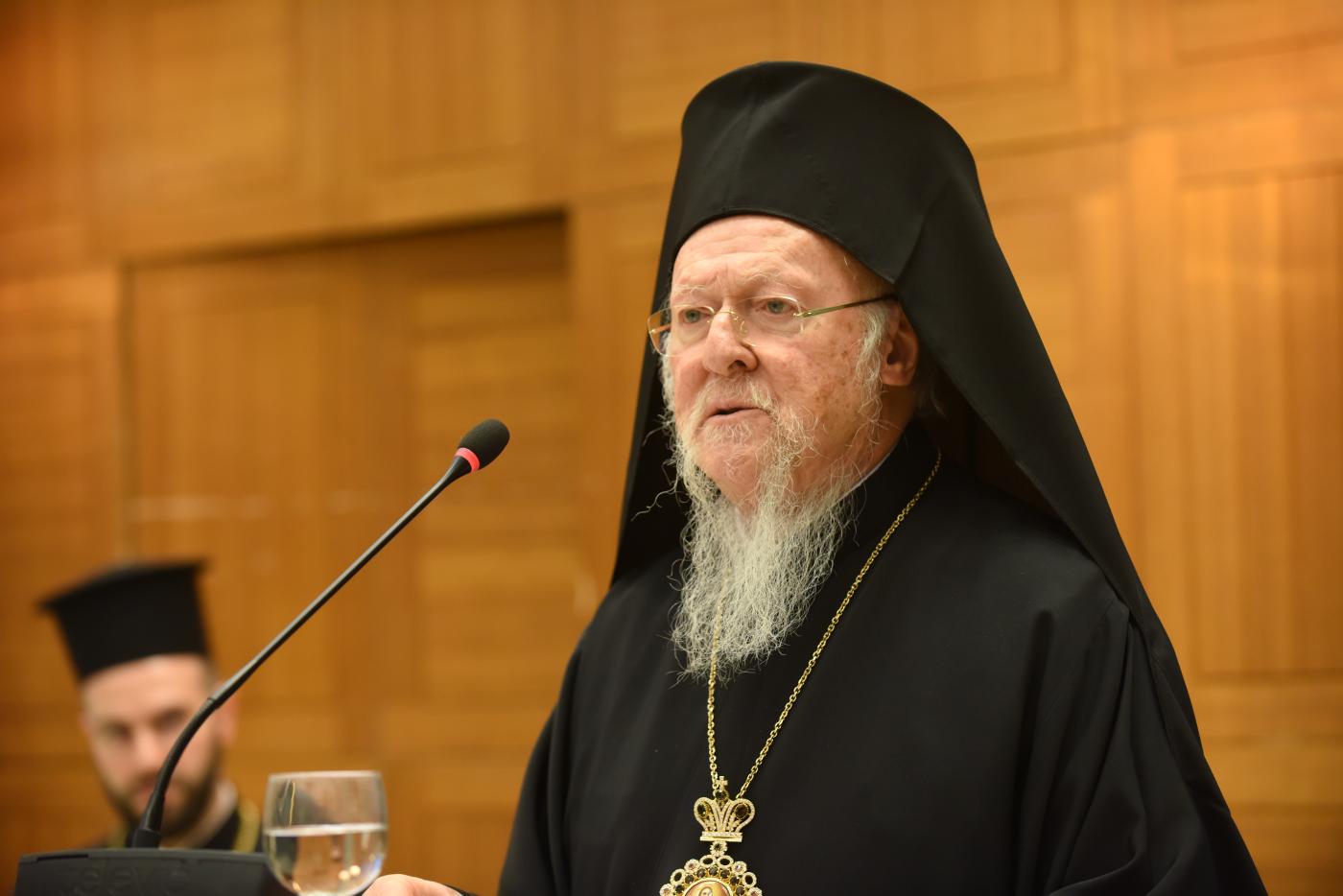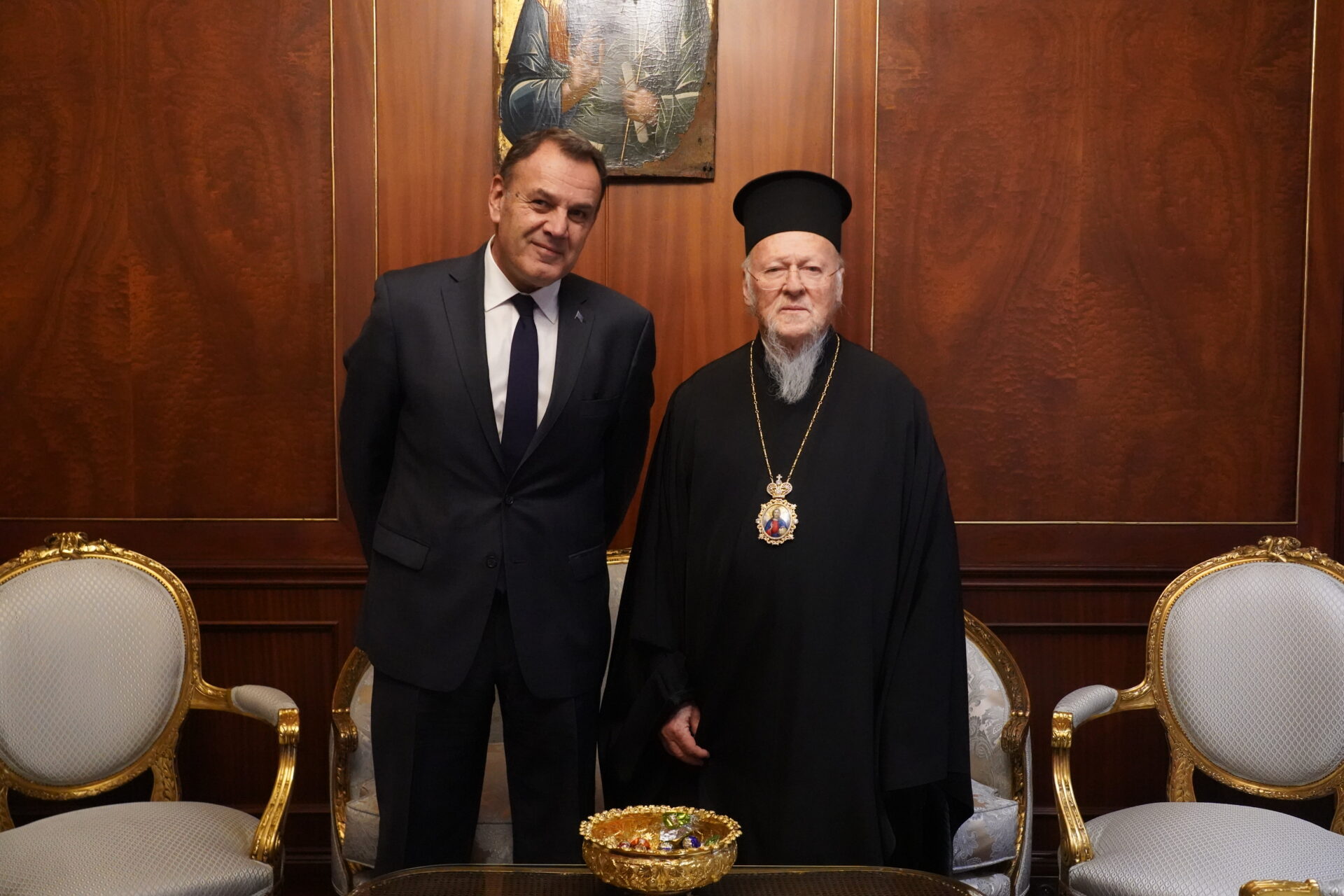The feast of the prophet Elisha at the Patriarchate of Jerusalem


On Tuesday, June 27, 2023, the feast of the prophet Elisha was celebrated by the Patriarchate of Jerusalem. This feast was celebrated in the Holy Monastery named after him in Jericho, in the area where there is also the sycamore tree of Zacchaeus.
During this feast, the Church commemorates that the prophet Elisha was descended from the village of Abel – Meul and was a farmer by profession. God sent the prophet Elijah to him and anointed him as a prophet. Then the prophet Elisha slaughtered his twelve pairs of oxen with which he was working and offered a feast to the people and followed the prophet, Elijah.
God anointed Elisha as a prophet and graced him with the power of many miracles, which are mentioned mainly in the books of Kings of the Old Testament.
Through his prayer, the prophet Elisha turned the bitter and dangerous waters of the spring of Jericho into sweet. He also healed Naaman the Syrian from leprosy, resurrected the son of the Shunammite woman, and made his servant Jezi a leper because of his avarice.
Prophet Elisha followed his teacher, the prophet Elijah, until the end when the prophet Elijah was taken up in a chariot of fire into the heavens and threw his fleece down to Elisha, on which he stepped and crossed the Jordan River.
In honour of the prophet Elisha, Patriarch Theophilos of Jerusalem led the Divine Liturgy in the above-mentioned Church, with the co-celebration of their Eminences, Archbishop Aristarchos of Constantina and Metropolitan Joachim of Helenoupolis, Holy Sepulchre Hieromonks, among whom the Reverend Archimandrites, Ignatios, Hegoumen of Beit Jala, Claudius, Onuphrius and Kyriakos, Fr Stavros Aranki and Fr Youssef Hodali and others, Archdeacon Mark and the Hierodeacon Dositheos. The service was attended by Jericho believers and pilgrims.
Before Holy Communion, the Patriarch of Jerusalem delivered the following Sermon:
“Take as an example, my brothers, the long-suffering and long-suffering of the prophets, who spoke in the name of the Lord”, (James 5:10) Saint James the Brother of God orders.
Beloved brothers in Christ,
Reverend Christians and pilgrims,
The grace of the Holy Spirit brought us all together today in this Holy Monastery of the Prophet Elisha, to celebrate his solemn memory and to thank the Lord our God, who “gave some, apostles; and some, prophets; and some, evangelists; and some, pastors and teachers; For the perfecting of the saints, for the work of the ministry, for the edifying of the body of Christ” (Eph. 4, 11-12).
“Of the prophets, some foretold Christ by word, and those according to him [Christ] revealed Him by their works; by word foretold about Him; Isaiah, Jeremiah, Ezekiel and the twelve with them; by works, He was shown by Elijah the Thesvite and Elisha his disciple”, says the Bishop Basil of Seleucia.
Indeed, Elisha was distinguished as one of the great religious personalities of Sacred History. He was called to the prophetic office, anointed by God’s command under the prophet Elijah as his successor (3 Kings 19,16). The Prophet Elijah saw Elisha ploughing his field and called him to follow him, he threw his fleece at him (3 Kings 19,19-20). This act symbolized the calling of Elisha to the prophetic office and the drawing of power and divine authority from it. By means of the fleece of the Prophet Elijah, Elisha divided the waters of the Jordan River and crossed it. From this event, the “sons of the prophets” recognized in Elisha the spirit of the teacher Elijah and worshipped him to the ground (2 Kings 2,7 / 4 Kings 2, 13-15).
The prophetic work of the spirit-bearing Elisha is inextricably linked with extraordinary actions and various miracles, which were recorded by the Holy author of the Books of the Kings. From the power of the miraculous divine energy in him, we can distinguish the change of brackish water into a drinkable spring in the inner region of your city Jericho (2 Kings 2, 19-22), the multiplication of the oil of a poor widow, in order to relieve her from serious debts, (2 Kings 4,1-6), the resurrection of the son of the rich Shunammite woman who hosted him, (2 Kings 4, 18-37), the healing of the leprosy of the Aramean general Naaman, ( 4 Kings 5, 1-14) and after his [Elisha’s] death, the resurrection of a dead man, thrown into the Prophet’s tomb and coming to touch his bones, (4 Kings 13, 20-21).
The mention of the Prophet Elisha by our Lord Jesus in today’s gospel reading is noteworthy: “And many lepers were with Elisha the prophet in Israel, and none of them was clean, except Naaman the Syrian” (Luke 4,27). These words of the Lord infuriated those present in the Synagogue because Jesus “began to say unto them, This day is this scripture fulfilled in your ears” (Luke 4,21). In other words, the work of the prophets and that of Elijah and Elisha was carried out in the person of the Son of God, Jesus Christ, as Saint Cyril of Alexandria interprets. The Psalmist also testifies to this truth, saying: “Touch not mine anointed and do my prophets no harm” (Psalm 104, 15).
The Holy Prophets and the righteous people in the Old Testament were the anointed ones by the Lord because they were dedicated to Him [God] and inspired by Him. God called these to minister the mystery of the divine Providence, hidden from the ages in God, (Cf. Eph. 3:9), as Saint Paul preaches.
This divine call to the ministry of the mystery hidden in God was also received by our today celebrated Prophet Elisha. Let us, therefore, hear the Author of the Book of Kings: “And when Elisha was come into the house, behold, the child was dead, and laid upon his bed. He went in therefore and shut the door upon them twain, and prayed unto the Lord. And he went up, lay upon the child, and put his mouth upon his mouth, and his eyes upon his eyes, and his hands upon his hands: and stretched himself upon the child, and the flesh of the child waxed warm. Then he returned, and walked in the house to and fro, and went up, and stretched himself upon him: and the child sneezed seven times, and the child opened his eyes” (2 Kings 4, 32-35).
In the described manner, in which Elisha resurrected the son of the Shunammite woman, the interpreter Basil of Seleucia discerned the pattern of the incarnation of the Son and Word of God, thus he points out saying: “Elisha bears the type of Christ”.
In fact, the bright Elisha bears the type of Christ, because he, as his hymnographer states: “the Holy Spirit showed thee to be an uprooter of every evil and a planter of every virtue, O all-blessed Elisha” (Matins, Ode 4, Troparion 1).
And the abundant grace of the Holy Spirit in Elisha is none other than that of the Spirit of Christ. And this Holy Spirit, as the wise Paul preaches, “understands our infirmities”, prays with us, and “overcomes our groaning and whispering” (Cf. Rom 8:26) for our spiritual progress and salvation.
The prophetic and miraculous speech of the God-bearer Elisha was strengthened by the power of the Holy Spirit. This means that the Holy Spirit rests in the hearts of those who live a virtuous life and keep their hearts pure, according to what is said in the Psalm: “Create in me a pure heart, O God, and put your own [and sovereign] spirit in my heart.” “, (Cf. Psalm 50:12).
For we too, my beloved brothers, beseech the prophet Elisha, the one who has boldness in the presence of God, that after our most blessed Lady Theotokos and Ever-Virgin Mary, but also of our celebrated Holy Father Methodius Archbishop of Constantinople, that they may intercede for our souls and for the peace of the Holy Land and the universe. Amen. Many happy returns”.
After the Divine Liturgy, the Hegoumen of the Monastery, Archimandrite Philoumenos, provided a reception.
At noon, a meal was offered by the Central Council of the Jericho Community in a city restaurant.
Source: Patriarchate of Jerusalem
More photos:








